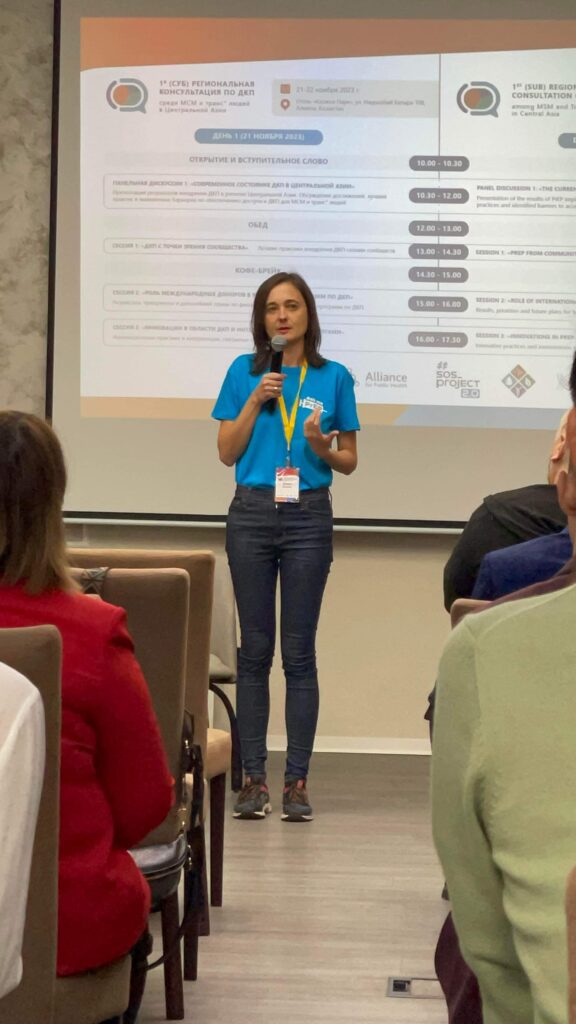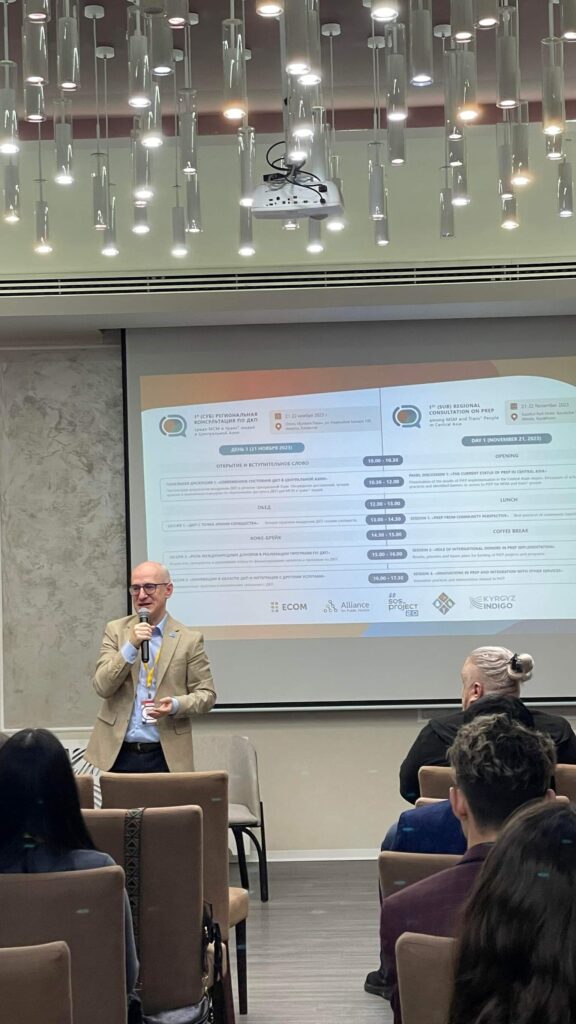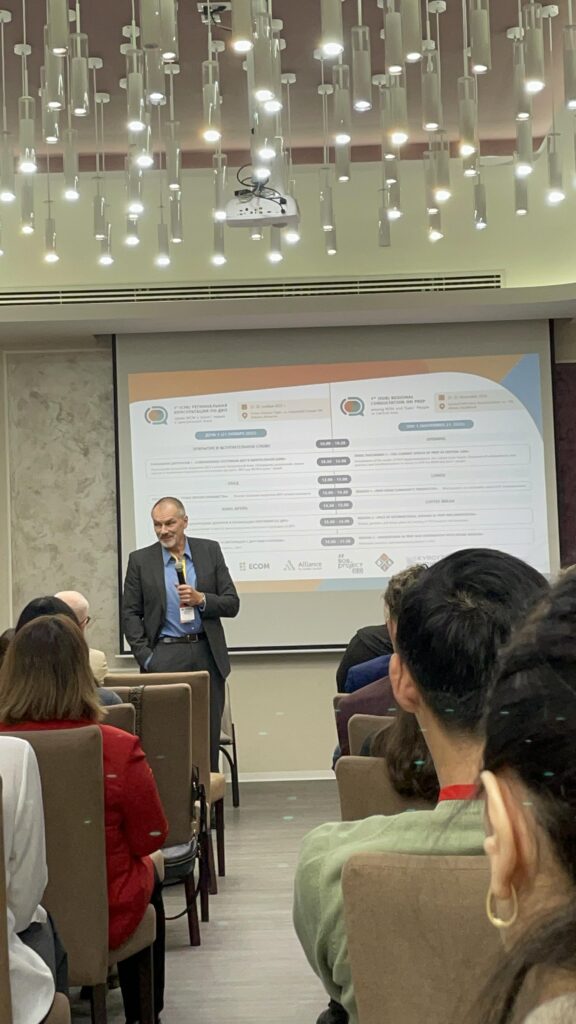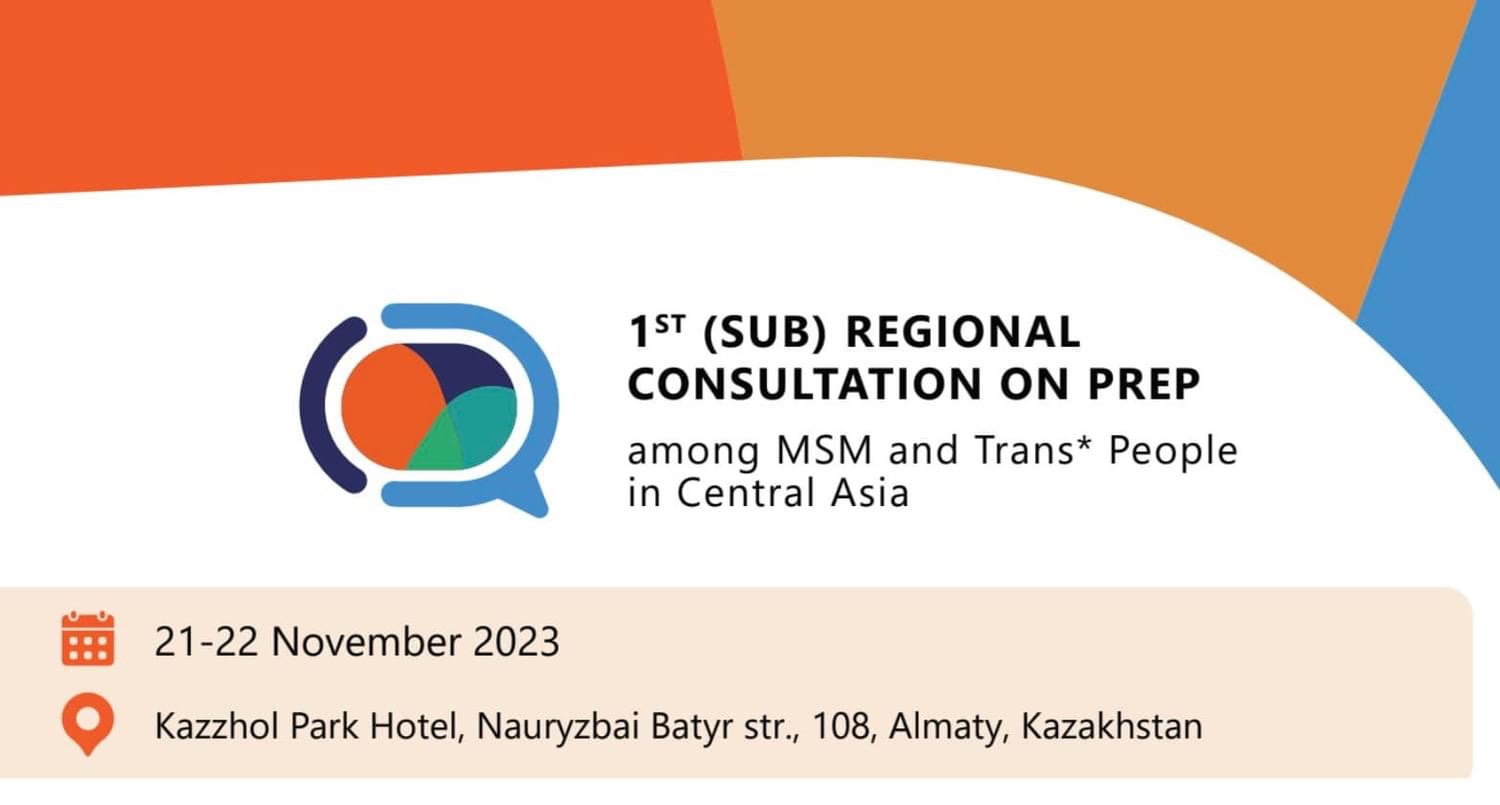Almaty, Kazakhstan, November 22, 2023 — The inaugural (Sub) Regional Consultation on Pre-Exposure Prophylaxis (PrEP) among MSM (men who have sex with men) and trans* individuals in Central Asia concluded today in Almaty, Kazakhstan. The event emerged as highly significant in the ongoing battle against the spread of HIV, especially considering the challenging situation among key populations in the region. The consultation brought together over 100 representatives from patient and medical communities, government agencies, non-profit organizations, international bodies, and UN agencies.
The choice of Kazakhstan as the event venue was deliberate, given the country’s substantial progress in implementing Pre-Exposure Prophylaxis. In 2023 alone, more than 5000 patients received at least one PrEP session, demonstrating the successful adoption of effective strategies and programs. The objective by the end of 2026 is to extend PrEP coverage to a minimum of 20% of key populations, equivalent to over 30 thousand individuals.
The consultation was organized by ECOM, Alliance for Public Health, Kyrgyz Indigo, with the support of WHO and the regional project SoS_project2.0, funded by The Global Fund.
During the opening session, Tetyana Deshko, Director of International Programs at Alliance for Public Health, underscored the consultation’s importance, particularly in light of the escalating HIV epidemic in the region.
“We know why this happens. The biggest gap in the response to HIV is meeting prevention targets. No country in the region has achieved the desired 95% coverage of key groups. Pre-exposure prophylaxis (PrEP) is precisely the intervention that can radically change the situation and trend of the epidemic, said Tatyana Deshko. – To do this, it is necessary to implement PrEP on a national level, and not just as part of pilot projects for several hundred people. It is extremely important to talk about significant percentages of coverage of key groups with pre-exposure prophylaxis. When we reach 20-40% coverage, only then will the HIV epidemic decline and be brought under control.”
The cost of drugs is also extremely important; they cannot be expensive and prices should be significantly reduced in the countries of EECA region. “As part of the regional project #SoS 2.0, it was possible to purchase pre-exposure prophylaxis medication for several Balkan countries at 5 dollars per month, which is 5-6 times cheaper than the neighbouring countries purchase.”
As Tetyana Deshko has highlighted, innovations and best practices from around the world should also be implemented in the countries of the region. It is important that different models and forms of PrEP are available. As a long-acting PrEP, cabotegravir is an injectable form that is administered once a month. The Proactive work and advocacy of Alliance for Public Health and PEPFAR support made it possible for Ukraine to become the first country in the region to receive the injectable PrEP for 100 clients. Other countries in the region should also take this opportunity into account and advocate and reach the access to it.
The consultation aims to showcase best practices in implementing pilot programs, innovations, and the application of artificial intelligence, serving as a wellspring of inspiration for participants, enriching their knowledge, and catalyzing actionable initiatives. Participants will have the opportunity to exchange experiences and formulate strategies for the next phases in combatting the HIV epidemic in Central Asia.









